“Look at autonomic nervous system regulation as a skill, not a state.” – Ryan Glatt
How does an overweight kid with ADD turn into a personal trainer specializing in brain-based fitness?
Well, it all started with video game Dance Dance Revolution which got teenage Ryan Glatt out of sedentary gaming, into movement. He started losing weight, and gaining interest in physical health.
Although Glatt passionately wanted to get to physical therapy school, and almost did in Scotland, life had other plans for him. He was detained for seven days at the Scotland airport, then deported back to the US.
So Glatt wound up pursuing applied functional science and becoming a structural integrator with Tom Myers (of Anatomy Trains). After a few years working with clients, he became particularly interested in cognitive functioning issues, and pursued his current speciality in neuro-health and brain-based fitness.
Click “play” below to hear this fascinating interview conducted by Tune Up Fitness blog manager Ariel Kiley, where Glatt breaks down how to train beyond the physical.
Here you’ll find clues on how to construct holistic exercise plans based on brain health goals. After listening, stop by his website Somatiq.co to learn more.
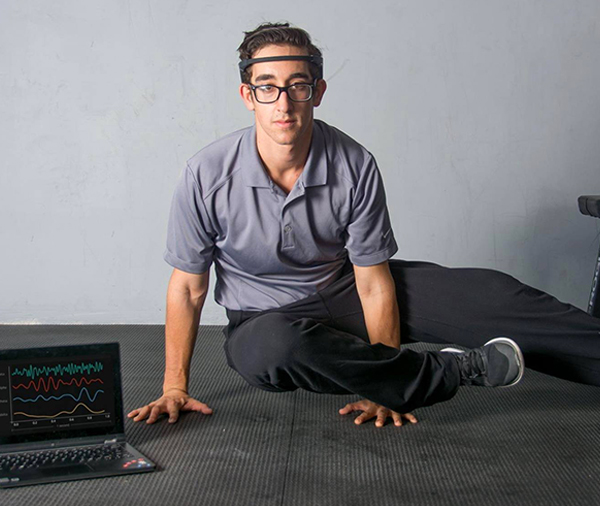

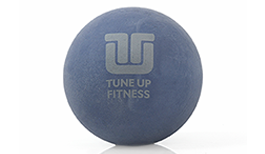

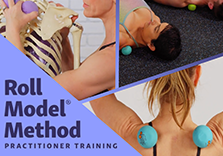



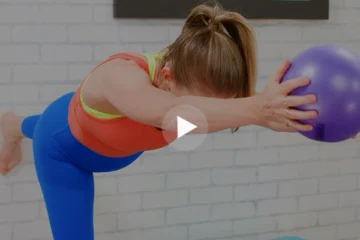
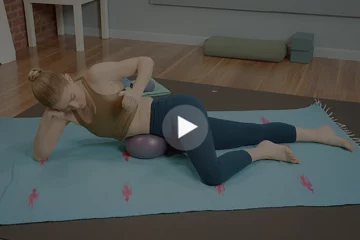
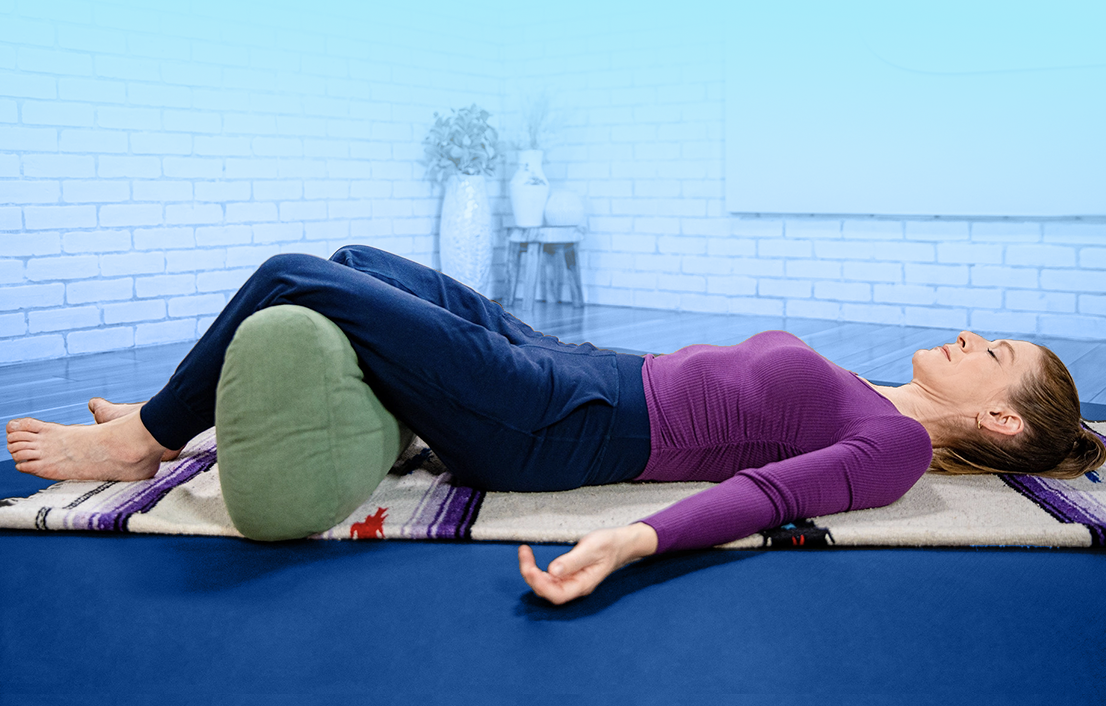
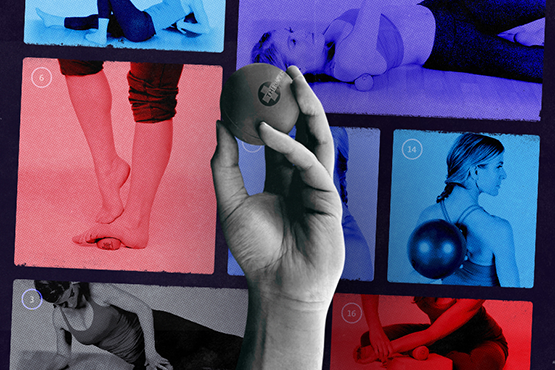
I found this article very interesting. In a time when ADHD, ADD and other Neurocognitive disorders or conditions seem to be on the rise it is interesting that there is finally studies being done about movement and improvement. As a hyperactive kid I was always moving. I literally could not sit still, I would sit down in my 3rd grade class and pop right back up. Lucky for me I did really like learning and my teacher was awesome. At this time I was diagnosed as Dyslexic and hyperactive. I just wanted to be moving, personally I was not into video games but I have other friends with ADHD and hyperactive and they love how fast paced they are. They can literally play for half the day. I also love that he persevered even with set backs and that I really try to instill in my daughter the love of curiosity and learning for the love of learning.
I’m inspired by stories of people who overcome obstacles and carve out their own paths by following their passions. Who would have thought a video game could spark a journey—from weight loss to a love for physical activity, and eventually, to a deep interest in studying cognition? Despite challenges like deportation and the loss of his dream to become a physiotherapist, he persevered. It’s fitting that someone with such a love for learning discovered the importance of staying curious- not only does it help post-concussive symptoms, but it helps promote healthy aging.
There were two things about this interview that spoke to me. This quote (“Look at autonomic nervous system regulation as a skill, not a state.”) really activated my thinking. If ANS regulation is a skill, we can develop it, it’s not a static state that you either have or don’t. I also enjoyed hearing about novelty and complexity as ways to stimulate brain health. Both of these possibly activating healthy brain plasticity encourages me to try new and harder things.
The research that found that people who had experienced concussions had a 50% decrease in symptoms after learning more about their injury and the effect it had on their body is mind blowing. Personally, the more I learn about how my body works, the less fear I have when I experience aches and pains. As Ariel says, Tune Up Fitness pairs education with practice, which is one of the main reasons why I have been so drawn to it. Body awareness=more Body Trust.
Fascinated by Neuro-Health. It was helpful to know that you see success with specific and measurable goals along with education. Also,thank you for sharing your trajectory career-wise. I find it inspiring as I get the sense mine is unconventional as well. Also, I love how you’ve been using Yoga Tune Up pre-recorded material as exercises they can do on their own to support your work with clients.
Ryan’s work on brain health is very interesting. I liked his approach of showing students and patients the “link from education to technique to behavior to results”.
I like the way you present skills to improve health rather than just appealing to people or trying to shame them. And continuing to challenge them through change.
I love this story! Especially the wild part about getting deported, yikes! Such perseverance on your path! I resonate with this so much because I was really inactive and unhealthy growing up through most of college and played video games and ate poorly. When I started working out everything cascaded into a career in helping others find health and remedy pain in their own bodies and feeling empowered themselves. It;s great to see how far that can go. I also like his focus on dual-tasking and novelty. Very interesting interview!
One of the things I try to remember and share with others is that movement and challenge doesn’t have to be arduous exercise. It can be simple, novel movements in your daily life. Challenging to move your body and joints in new, small ways is helpful for those who haven’t exercised and those who do all the time. It keeps the brain learning and fosters an attitude of curiosity. Love this work.
I thoroughly enjoyed this podcast and information related to brain and body evolving together. The importance of being mindful in movement was a key point that really hit home for me. Novelty is a key factor in creating those moments of presence and thrill during my movement practices that suddenly become more of a mindless routine unless I keep challenging myself by putting a spin on an exercise or movement.
Increasing the complexity of movement, as Ryan suggests, really helps. The point on developing skill in this makes perfect sense. The formula he gives was probably my favorite part of the podcast that related to skill, challenge, and anxiety level: When skin is high and challenge is low boredom sets in; When skill is low and challenge is high anxiety and frustration set in. We need just the right amount of cognitive load and physical load that challenges us in a way we can manage. This formula was so useful for me to apply to my teaching in Pilates, especially with my regular clients. Many thanks, Ryan!
I can see Ryan adapting these principles into a guidebook for those of us in the fitness industry or the like. In my field, I see many instructors and even businesses not taking this formula into account, which can contribute to unnecessary injuries, bored clients who cancel memberships/sessions, and even instructors feeling sense of ineffectiveness or inefficiency in terms of programming. I can definitely see how this information on mind-body connection and the skill-challenge formula can be marketed to help improve instructor/practitioner—client relationship!
What a beautiful journey!
With aging parents who worry about cognitive decline, this was very incite full. Will look into some of the programs mentioned for sure.
Training the brain has always being an important but unknown issue of the fitness environment, putting attention into this might be even more important than excercising the body. Getting to know this techniques and research seems very interesting and leaves everyone thinking about all the benefits this might bring to their lives, for me it sounds awesome, I want to learn more about it, hearing Ryan talk about how the skills must match the challenge and always keep increasing so the brain doesn’t gets bored makes total sense. Good article and great research.
What a badass journey you’ve had, Ryan! It makes so much sense how practicing the same yoga poses or same workout routine over and over wouldn’t make your brain any smarter. Just like how if you don’t challenge your muscles with heavier weights or new exercises, they won’t grow bigger because the body will only do as much as it needs to meet the demands of the person!
Artículos como este me recuerdan que siempre tenemos la posibilidad de cambiar, a veces la vida nos lleva a situaciones inesperadas y pueden ser el puntapié para desarrollar, por ejemplo, una vocación. No sabemos nuestro potencial hasta que lo desarrollamos y ese camino implica valor y coraje. Gracias por esta nota.
Proves there are many different angles and avenues into the fitness world. The ones that are not so traditional are usually most interesting. Nice questioning and answers.